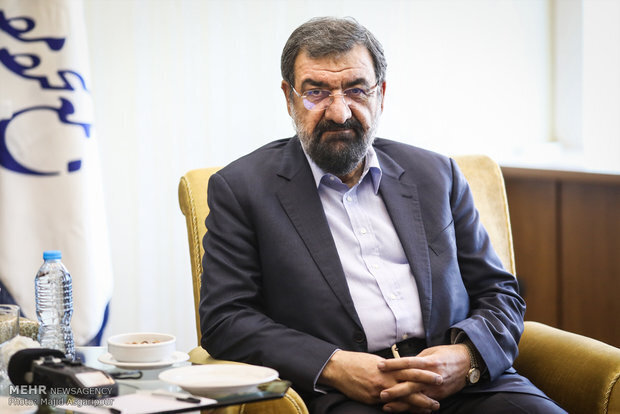Expediency Council still evaluating FATF-related bills: secretary

TEHRAN - The secretary of the Guardian Council announced on Tuesday that Palermo and CFT bills are still under assessment in the council.
“The FATF-related bills (Palermo and CFT) are still under evaluation in the Expediency Council, so, I can’t say anything now (about the outcome of assessment),” Rezaee said, Fars reported.
In response to a question about the date when the council can announce its decision, Rezaee said, “It is unclear yet. We can’t specify the exact date. We will talk after evaluations.”
In mid-October, the Paris-based Financial Action Task Force (FATF) said that it had given Iran a final deadline of February 2020 to tighten its laws against money laundering in compliance with the global watchdog’s financial standards.
“If before February 2020, Iran does not enact the Palermo and Terrorist Financing Conventions in line with the FATF Standards, then the FATF will fully lift the suspension of counter-measures and call on its members and urge all jurisdictions to apply effective counter-measures, in line with recommendation 19,” the FATF said in a statement at the time.
“The FATF expects Iran to proceed swiftly in the reform path to ensure that it addresses all of the remaining items by completing and implementing the necessary Anti-Money Laundering and Counter-Terrorist Financing reforms.”
One of the actions Iran is required to take to appease the FATF is joining the United Nations Convention against Transnational Organized Crime (UNTOC), which is also called the Palermo Convention, a 2000 United Nations-sponsored multilateral treaty against transnational organized crime.
The other action is to ratify the CFT, the convention combating the financing of terrorism.
On October 7, 2018, the parliament voted in favor of the CFT. However, the oversight Guardian Council rejected the bill by finding 22 faults with it, which put the fate of the bill at the hands of the Expediency Council.
In October, Rezaee said the government was not permitted to join the Palermo Convention.
“The bill to join the Palermo Convention was rejected in the Supreme Supervisory Board because it contradicted with the establishment’s general policies,” said Rezaee.
Also, a member of the Expediency Council said on October 14 that the council had set aside studies to approve the Palermo bill.
“Palermo and CFT will help the United States identify the ways we circumvent the sanctions. We will not tighten sanctions with our own hands,” Gholamreza Mesbahi-Moghadam said.
He added, “We are managing the country through circumventing the sanctions. Approval of these two bills is not wise.”
The opposition to join the FATF rose after the Trump administration revoked the 2015 nuclear deal in May 2018 and started imposing sanctions on Iran. Since that date, it has slapped multiple rounds of sanctions on Iran.
On Monday, ISNA quoted MP Shahabodin Bimeqdar as saying that a group of parliamentarians was planning to write a letter to Ayatollah Ali Khamenei, the Leader of the Islamic Revolution, over consequences of the possible rejection of the FATA.
“Most of the country’s economic experts have emphasized that if we do not join the FATF the country will be put on the blacklist, our banks’ branches abroad will face a boycott,...” Bimeqdar remarked.
Refusing to join the FATF, he added, bank accounts of Iranian traders abroad will be blocked.
“I have heard that the Russian Foreign Ministry, in a letter, has announced to the Iranian Foreign Ministry that if Iran does not join the FATF, Moscow will not be able to continue cooperation with Tehran. Certainly, exports and imports will face difficulties,” he claimed.
“In case of disapproval of the FATF, the value of the country’s currency will decrease against the dollar which in turn will negatively affect the prices of goods,” the MP added.
MJ/PA
Leave a Comment